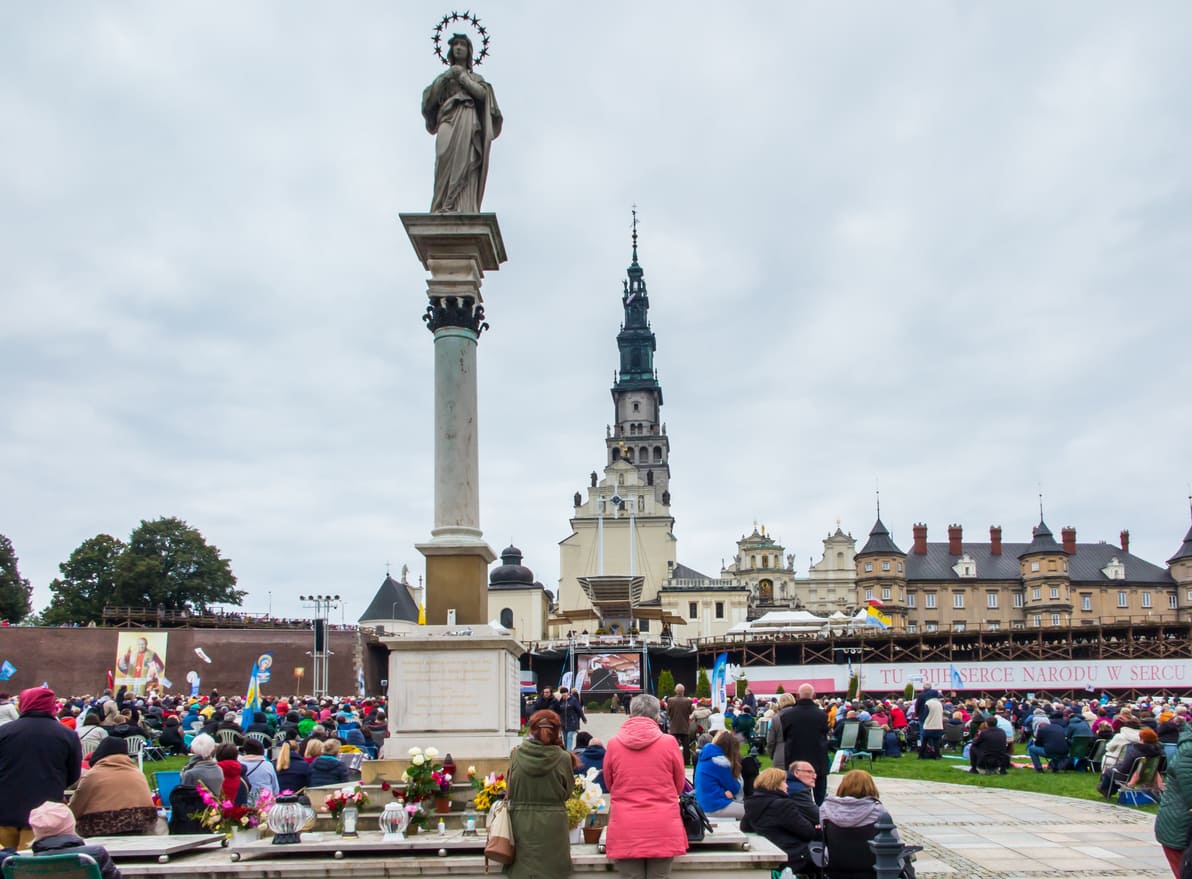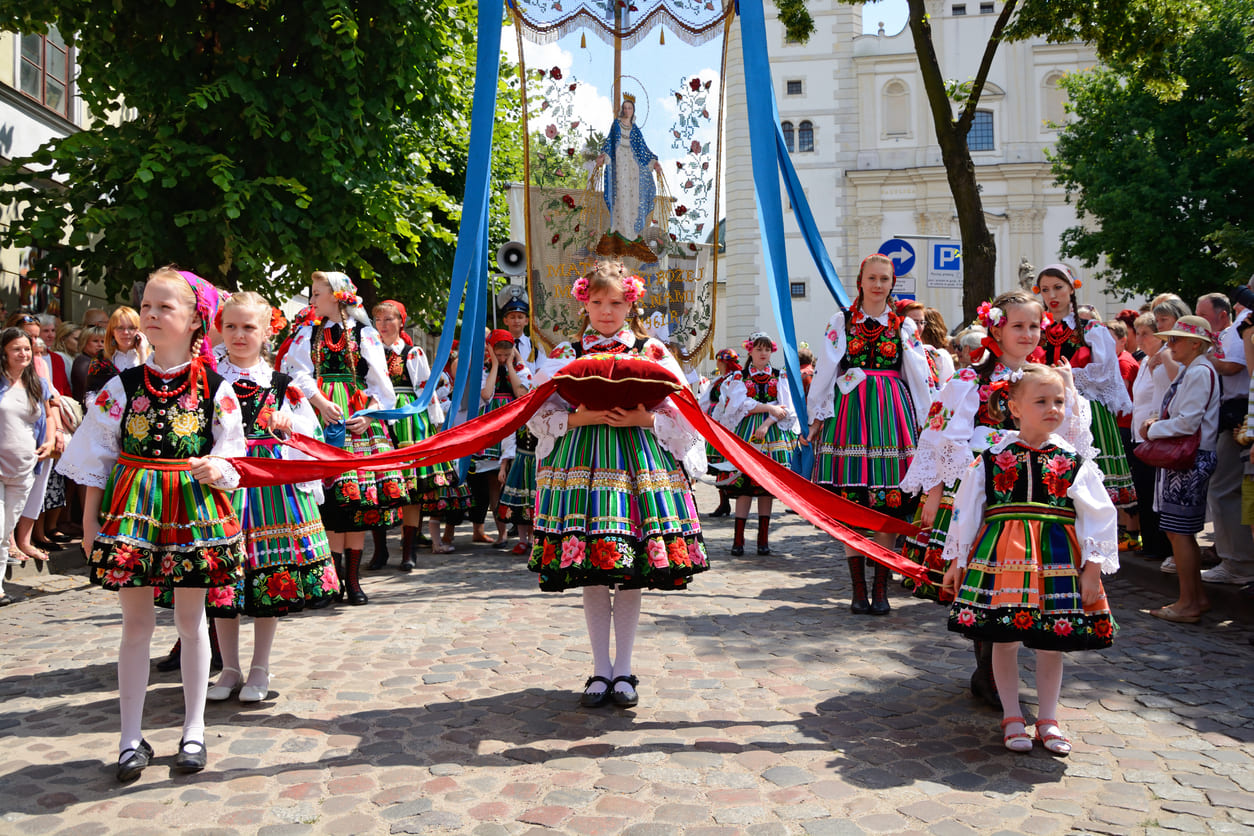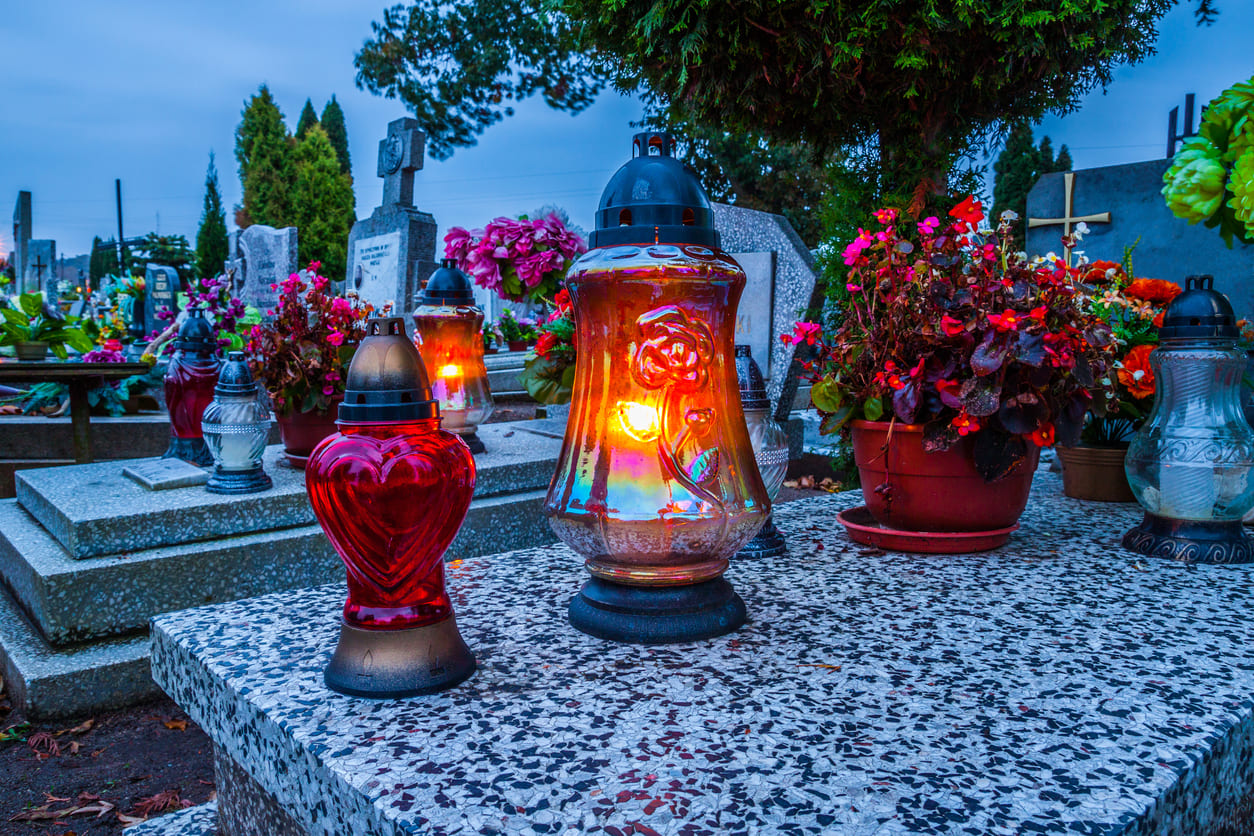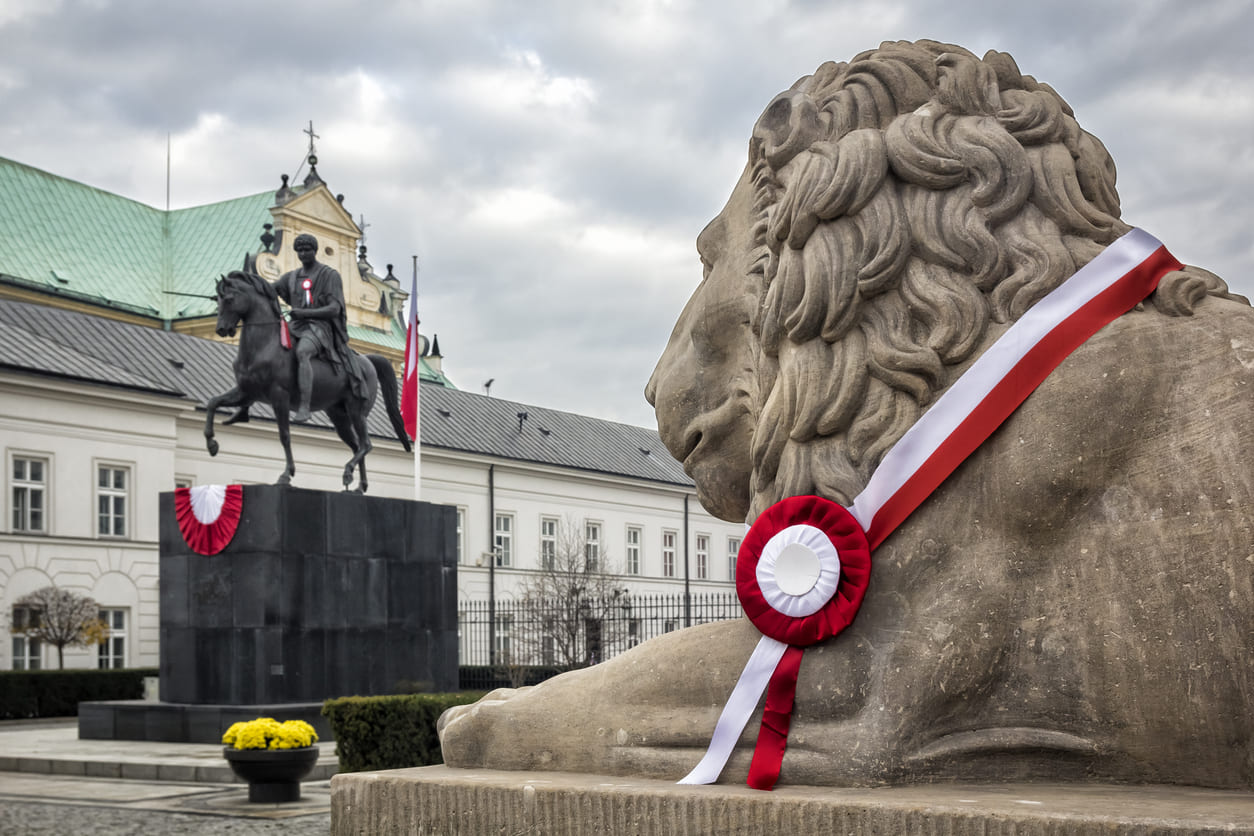Dates of Whit Sunday in Poland
| 2026 | May 24 |
| 2025 | Jun 8 |
| 2024 | May 19 |
Poland Holiday Calendars
Whit Sunday is a Christian holiday celebrated 50 days after Easter to commemorate the descent of the Holy Spirit upon the apostles. It is an important religious observance marked by church services, prayers, and traditional customs, though it is not a public holiday in Poland.
Whit Sunday: A Public Holiday?
Whit Sunday is a public holiday in Poland, but since it always falls on a Sunday, there is no extra day off. Businesses and schools are already closed, so the work schedule is not affected. It remains an essential religious celebration with church services and traditions.

Whit Sunday
Whit Sunday, known as Zielone Świątki in Poland, is a Christian holiday celebrated 50 days after Easter. It commemorates the descent of the Holy Spirit upon the apostles, marking the birth of the Christian Church. The origins of Whit Sunday, also called Pentecost, trace back to biblical times when the apostles received the Holy Spirit and began preaching the Gospel. Over the centuries, it became an important religious celebration across Europe, including Poland. In the past, Whit Sunday was also linked to pre-Christian traditions of welcoming summer and celebrating nature, especially in rural areas where people decorated homes with green branches and flowers.
Observance of Whit Sunday in Poland
In Poland, Whit Sunday is observed with church services, prayers, and spiritual reflection. It is a time for believers to seek guidance, wisdom, and strength from the Holy Spirit. Many churches hold special Masses and processions, where clergy and worshippers pray for divine blessings and renewal of faith. In some regions, it is also a day for religious gatherings and community prayers, reinforcing the importance of faith in daily life.
Traditional folk customs associated with Whit Sunday have their roots in pre-Christian Slavic traditions, which celebrated the arrival of summer and the power of nature. In rural areas, people once decorated their homes, churches, and altars with fresh greenery, flowers, and birch branches, symbolizing new life, fertility, and the renewal of the earth. This custom continues in some Polish villages, preserving the connection between faith and nature. In the past, Polish villages observed Whit Sunday with lively festivities, feasts, dancing, and bonfires, celebrating both religious devotion and the changing of the seasons. Though many of these traditions have faded over time, the cultural heritage of the holiday remains.
The importance of Whit Sunday lies in its religious meaning, reminding Christians of the presence of the Holy Spirit and the foundation of the Church. It is a day of faith, reflection, and gratitude, strengthening the connection between people and their religious beliefs. While modern celebrations focus more on church services, Whit Sunday remains a significant holiday in Poland, blending Christian traditions with traces of old folk customs that highlight the deep cultural roots of this special day.
Whit Sunday Observances
| Year | Date | Weekday | Name | Holiday Type |
|---|---|---|---|---|
| 2024 | May 19 | Sun | Whit Sunday | National Holiday |
| 2025 | Jun 8 | Sun | Whit Sunday | National Holiday |
| 2026 | May 24 | Sun | Whit Sunday | National Holiday |
| 2027 | May 16 | Sun | Whit Sunday | National Holiday |
| 2028 | Jun 4 | Sun | Whit Sunday | National Holiday |



